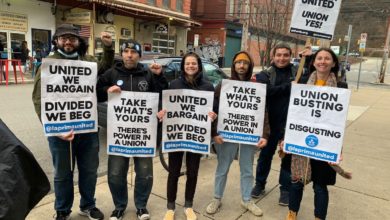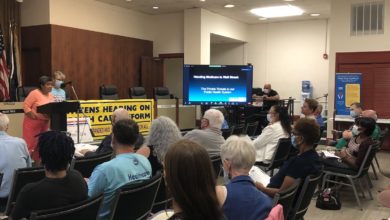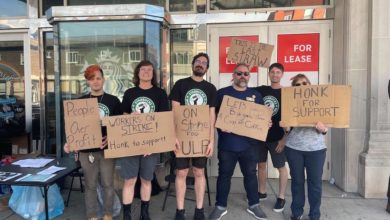In 2021, Pittsburgh’s Shuman Juvenile Detention Center was closed after an investigation by the Pennsylvania Department of Human Services uncovered numerous instances of abuse and neglect of children at the facility. Now, Allegheny County Executive Rich Fitzgerald and members of the Allegheny County Council are pushing for a reopening of the facility to address an alleged spike in youth crime. County funds for the youth prison have since been reallocated, and politicians are now looking to reopen the center under the auspices of private shareholders instead of the county government.
Situated in the primarily Black neighborhood of Lincoln-Lemington-Belmar, Shuman Center’s nearly 50-year history had been marred with controversy. Years of allegations of mistreatment by staff culminated in a heroin overdose occurring in the facility in August 2021 that was not treated for nearly an hour before paramedics arrived. The center had been operating under provisional licenses since 2015 due to the large number of complaints it received, and it continued to see an increase in violations before the license was fully revoked shortly after the overdose. The center acted as a punitive measure against impoverished youth and youth of color, often as the beginning of a long cycle of incarceration. Similar trends have been seen across the United States, the country with the highest youth incarceration rates in the world.
Since its shutdown, local politicians and business owners have complained that Shuman’s absence has led to an uptick in violent crime amongst youth downtown. The mayor of Pittsburgh, Ed Gainey, and his administration see this carceral philosophy totally in line with their recently unveiled “Plan for Peace,” a campaign to reduce violent crime in the city of Pittsburgh. So far, the campaign has primarily resulted in a tripling of police presence in downtown, low-income and predominantly Black neighborhoods, and strict curfews proposed for youth in these same areas. At a news conference on a triple homicide shooting in October, before the information of any suspects had been released, Gainey inexplicably blamed the closure of the former Shuman Center. He stated, “We should have never closed Shuman without a plan.”
Liberation News spoke with Willow and Deonte, two students that attend high school in downtown Pittsburgh. Like the rest of their peers, they tend to hit the streets after school is finished, packing sidewalks and fast food restaurants. “Mom is still at work, so I just hang out [downtown] until she calls me home,” said Deonte. When asked about the particular locations they tend to flock to, they mention fast food restaurants and “around.” Willow says, “Where else would we go?”
When asked about the increased police presence, Deonte said, “No, we don’t feel safer when surrounded by police. We feel safer with people we know.”
The conversation about juvenile detention privatization in Allegheny County raises serious concerns, and brings back painful memories of neighboring Butler County’s “Kids for Cash” controversy. This scandal from the early 2000s involved corrupt judges who sent children to for-profit facilities in exchange for money from the capitalist prison owners. For-profit prisons are a sinister reality of U.S. capitalism. With no focus on rehabilitation, and an emphasis on profits over people, futures have been robbed from the working-class youth in western Pennsylvania.
Bids for the Shuman Center have already started coming in, and its reopening has made for a particularly hot issue in the Allegheny County Executive race this year. Two out of the three front-runners for the seat, John Weinstein and Michael Lamb, have been particularly vocal in their intentions to reopen Shuman Center. Most other candidates are clamoring for the need for some kind of juvenile carceral facility, claiming it is necessary for “preventing violent crime” and securing the profits of business owners in downtown Pittsburgh.
Local politicians and business owners are united in a campaign of mass incarceration, directed disproportionately at the youth of color and working-class youth in the city of Pittsburgh. In this system, public schools are not profitable, after school programs are not profitable, but it is profitable to funnel children into for-profit facilities. Even after historic protests against police brutality and militarization, Allegheny County politicians would rather spend the money to increase the power of the police than spend the money on the education of their youth, and it will cost the futures of countless kids.
These failures highlight the need for a society that provides resources for rehabilitation, instead of a punitive carceral system focused on profits and isolating members of the working class. It highlights the need for a world where we care more about the futures of our children than the wallets of shareholders, and a world where we walk down the street without being accosted by police. A better world is possible, and a better world is socialist!






